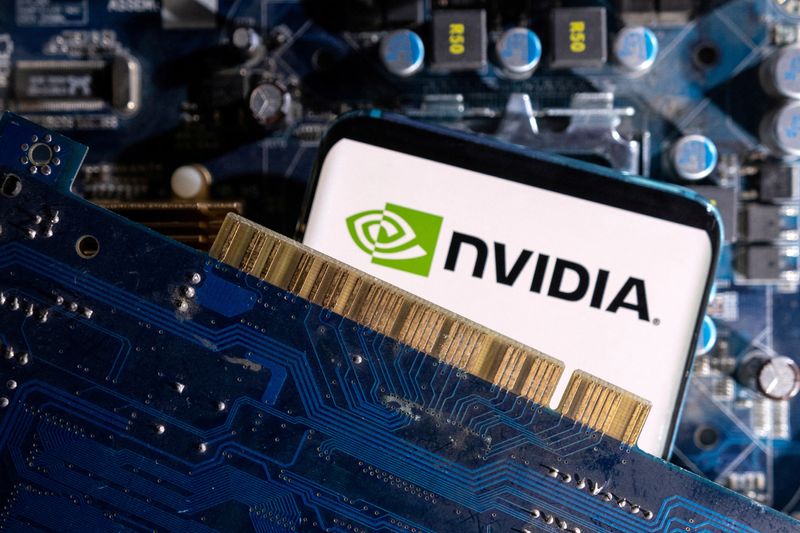Deutsche Bank (ETR:DBKGn) has reiterated a Hold rating on NVIDIA (NASDAQ: NASDAQ:NVDA) with a steady price target of $100.00. The firm anticipates another robust quarter for NVIDIA, highlighting the continued demand for the company's Hopper and Blackwell solutions across various customer segments.
Despite concerns over potential delays in the launch of NVIDIA's Blackwell platform due to technical issues, Deutsche Bank does not foresee a significant impact on the company's near-term financial outlook or its ability to meet market expectations.
The bank noted that any potential supply gap caused by delays could likely be offset by increased sales of NVIDIA's Hopper products. Deutsche Bank emphasized NVIDIA's consistent performance, having surpassed its revenue guidance by over $2 billion in the last four quarters. As a result, another substantial upward revision to revenue estimates would not come as a surprise, although the long-term sustainability of this growth remains a topic of discussion.
NVIDIA is recognized for its leadership in the AI computing market, and Deutsche Bank acknowledges the company's strong position to benefit from continued investment in this sector over the medium term. Nevertheless, the current valuation of NVIDIA's shares at approximately 40 times Deutsche Bank's projected CY25E EPS suggests that the stock is fully priced, according to the firm's analysis.
In other recent news, NVIDIA has received positive outlooks from financial firms Stifel and Goldman Sachs (NYSE:GS) ahead of its second-quarter financial results for fiscal year 2025. Stifel maintained its Buy rating on NVIDIA shares, expressing optimism about the demand environment for NVIDIA's H-Series SKUs. Goldman Sachs reiterated its Conviction Buy rating, anticipating the company's upcoming results to potentially increase investor confidence in NVIDIA's earnings power for calendar year 2025.
Simultaneously, Advanced Micro Devices, Inc. (NASDAQ:AMD) announced its intention to acquire server manufacturer ZT Systems for $4.9 billion. The move aims to boost AMD's artificial intelligence (AI) chip and hardware offerings, allowing the company to compete more effectively with industry rival NVIDIA. The acquisition, expected to be finalized in the first half of 2025, will primarily boost AMD's GPU sales.
This article was generated with the support of AI and reviewed by an editor. For more information see our T&C.
